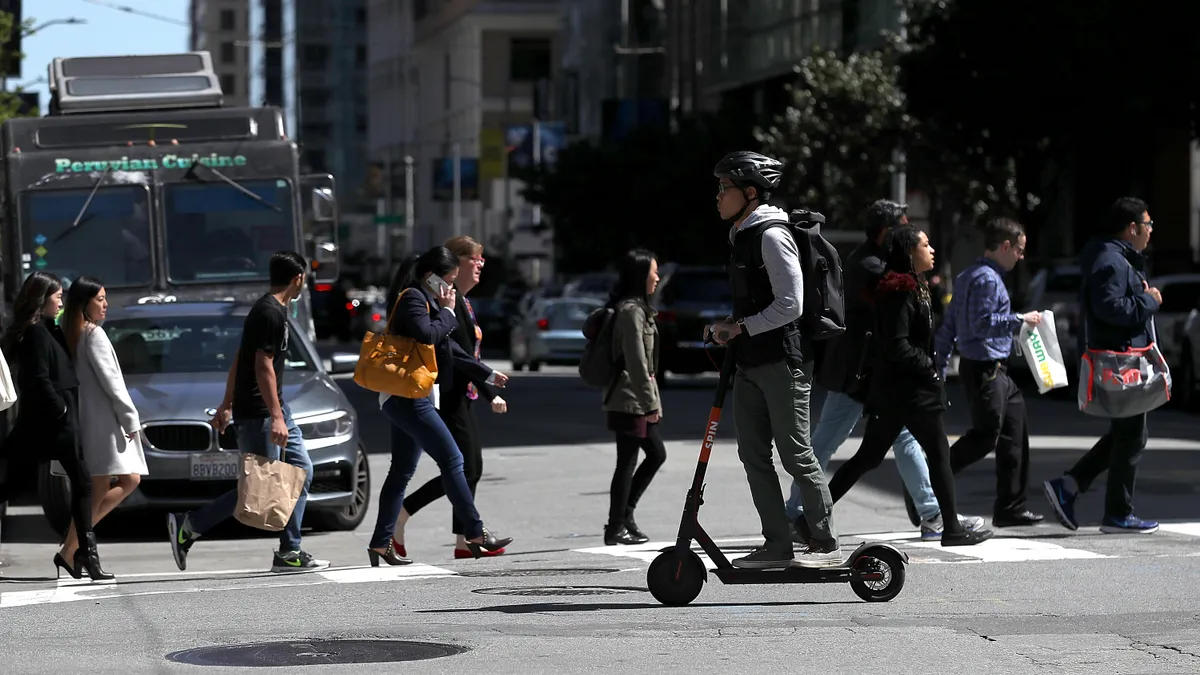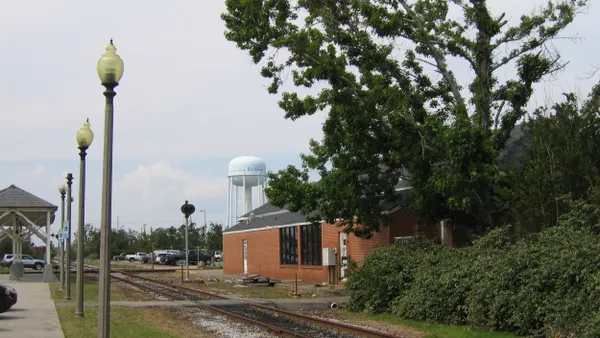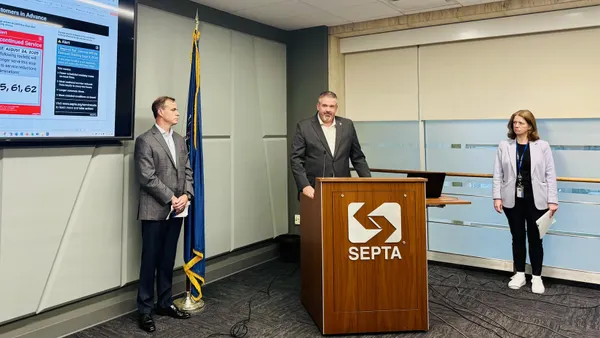Dive Brief:
- The Pittsburgh City Council last week approved an ordinance regulating e-scooters, capping their speed at 15 miles per hour and restricting them to streets with designated lanes or streets where the speed limit is 25 mph or less.
- The ordinance, which passed in an 8-0 vote Sept. 21, set slightly stricter rules than the state of Pennsylvania’s, which allow scooters on roads with speed limits of up to 35 mph, according to Pittsburgh Magazine. Mayor Bill Peduto backed the ordinance as a safety measure as scooter ridership has increased.
- Ann Arbor, Michigan, meanwhile, approved an ordinance allowing broader use of scooters, including granting permission for them to be ridden on sidewalks without imposing speed limits. The 8-3 city council vote came amid concerns about danger to pedestrians and riders, but it still allows the city to place restrictions through traffic control orders.
Dive Insight:
More than three years after scooters showed up on U.S. sidewalks, cities are still working out how best to regulate them. While many have taken a proactive approach to permitting and instituting safety rules, guidance still varies across state and city lines and is often subject to change as transportation departments adapt to the vehicles’ growing use.
Alex Engel, spokesman for the National Association of City Transportation Officials, said the group's members continue to discuss approaches to micromobility, especially as providers adapt their technology and consolidate. One emerging trend, he said, is governments reaching agreements with specific providers rather than issuing broad permits, which "allow you to more closely control and work with the vendors to ensure that outcomes are mutually beneficial."
The Pittsburgh ordinance codifies rules that have been in effect since Peduto issued an executive order in July authorizing a Spin pilot program. Since July 9, there have been more than 156,000 scooter trips, the city told council members. The city has promoted scooters as a transportation tool for people who do not own cars, pointing to evidence that people are using them to get to bus stops or light rail lines.
Speaking at a city council debate last week, Councilman Bruce Kraus said that he has “reservations” about safety and questioned whether the government should be in charge of regulation. However, he said, he “didn’t want to be an obstructionist for what is ultimately proving to be a necessary addition to alternative means of mobility, especially for young people,” thus he backed the ordinance.
In Ann Arbor, Councilmember Ali Ramlawi also expressed concerns about safety, especially with scooters riding on sidewalks. “The speeds are too much,” he said at the council meeting last week, according to MLive, adding that residents had approached him about collisions. However, fellow Councilmember Julie Grand called the concerns "fearmongering," stating that scooters are far less dangerous and more accessible than cars. The ordinance applies to both personally owned and rented scooters, although city Transportation Manager Raymond Hess has said that the shared Spin scooters will be geofenced and limited to 10 mph.
Meanwhile, micromobility companies have expressed concern about a possible move by Washington, D.C., that would limit the number of shared bike and scooter providers in the city. The District Department of Transportation has proposed a competitive permitting process that would allow eight operators to rent scooters and only three of those to operate both scooters and bike share, rather than the current uncapped field. Although only five scooter companies currently operate in the district, two which have bike fleets, there is concern they could face competition from startups, the Washington Post reports.
An open letter from four fleet providers last month cited new safety and parking rules, as well as continued service during the COVID-19 pandemic, as reasons for DC to keep current permits in place. "The existing scooter operators continue to deliver essential services for District residents and employees, and a new process would eliminate some of these essential options," they wrote.
NACTO's Engel said that cities will continue to chart their own paths for rules that work with their infrastructure and user base. "This is a new industry, the model is new, we're seeing cities learn from each other as they figure out what works."










